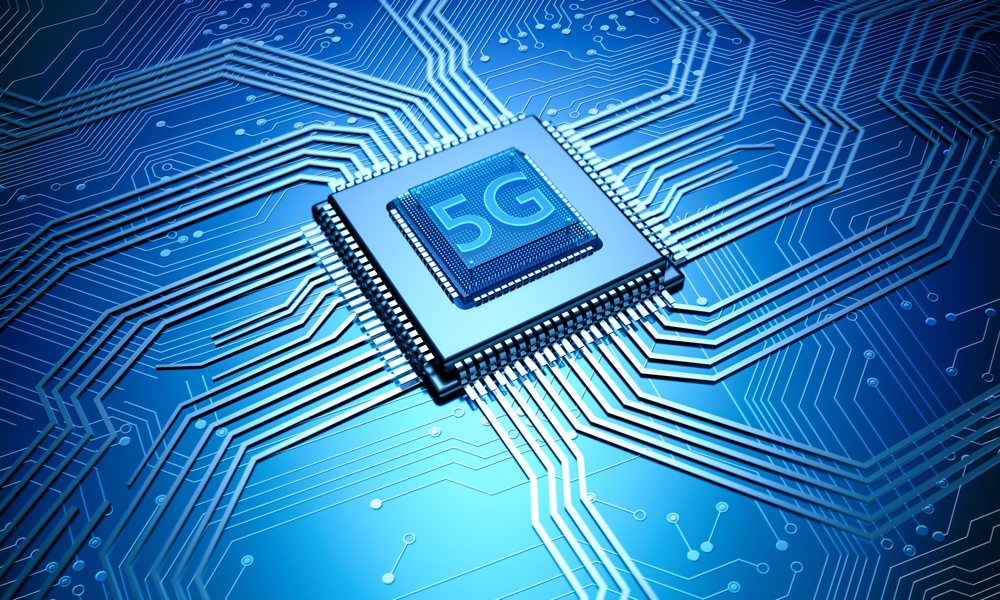Apple Developing Its Own 5G Chip as Modem Engineering Moves to Chip Design Group
 Credit: HelloRF Zcool / Shutterstock
Credit: HelloRF Zcool / Shutterstock
Toggle Dark Mode
Apple has a strong and long-running chip engineering division charged with building the silicon for its own mobile devices, from the very solid lineup of A-series chips that have powered the iPhone and iPad from the very beginning, to its more recent developments of the S-series chips for the Apple Watch and the W-series chips that provide the advanced Bluetooth smarts for its AirPods and Beats wireless headphones.
So the writing has been on the wall for a couple of years now that Apple will inevitably bring its modem chip manufacturing in-house as well, especially as the company has been forced to lean more heavily on Intel chips in the midst of its ongoing war with Qualcomm.
Now, with a 5G iPhone looming on the horizon, the company appears to be making its move. Two people familiar with the matter have told Reuters that Apple’s modem chip engineering unit has been moved from Apple’s supply chain unit into its in-house hardware engineering group headed by Johny Srouji, Apple’s senior VP of Hardware Technologies.
Although analysts have long speculated that Apple would begin building is own modems — a move that seems to make sense considering the company’s other chip efforts — most believed that it would take years before Apple would be ready to ship an iPhone with its own modem hardware.
While this isn’t the first time we’ve heard the news that Apple is working on developing its own in-house modems, the actual shift from supply chain to hardware engineering suggests that the company could actually be ready to incorporate its own modem chips into iPhones as early as 2020 — at least a year sooner than most analysts have predicted. That said, the division in question is responsible for specifying chip design requirements, and not outright procurement, and there have been other rumours suggesting that Apple may still include an Intel 5G modem in its 2020 lineup — technology that it’s been testing since mid-2017.
Apple has also been taking its typically cautious approach to rolling out 5G technology. While many analysts have criticized Apple’s delays, deployment of 5G technologies have been plagued with problems, justifying the company’s more conservative approach. Apple was similarly slow to adopt 3G and LTE, with both technologies not appearing in the company’s devices until the 2008 iPhone 3G and the 2012 iPhone 5 — at least two to three years after the respective technologies began to be widely deployed. While early adopters decried the lack of current standards each time, most consumers were unfazed by the delays.
Nonetheless, it stands to reason that Apple’s own modem chip efforts will be focused on the 5G standards, and in fact the decision to shift chip making efforts in-house may be spurred by the move to 5G. While Apple is reported to have been testing Intel 5G chips, there’s been little word on whether the company has been happy with their performance or has confidence in Intel’s ability to supply them. With hundreds of millions of iPhones being shipped annually, it’s this last point that likely provides the greatest incentive for Apple to start making its own 5G chips.
In fact, if Intel is unable to supply 5G chips for a 2020 iPhone model with the proper performance or in the proper quantities, Apple is left with few choices: it can either produce its own chips, crawl back to Qualcomm with its hat in hand, seek out competitors like Huawei or Samsung as an alternative source for the necessary 5G chips, or simply delay the 5G iPhone. It’s for reasons like this that Apple has long preferred to ensure that it owns as many pieces of its supply chain as possible. While the company certainly has the engineering chops to take on its own modem chip design, it still remains an open question whether it will have to continue to rely on third-party suppliers for a 5G iPhone release or whether it will have its own solution ready in time.






